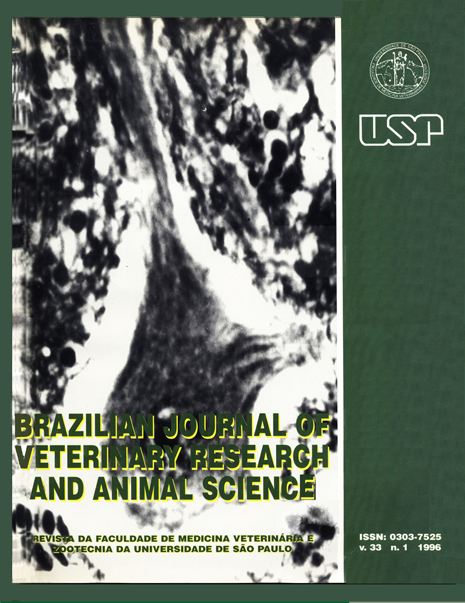The potentiating effect of chloramphenicol succinate in rat carrageenininduced acute pleurisy. Inhibition by indomethacin and dexamethasone
DOI:
https://doi.org/10.11606/issn.2318-3659.v33i1p11-14Keywords:
Chloramphenicol, Pleurisy, Carrageenin, Dextran, Indomethacin, Dexamethasone.Abstract
The effect of indomethacin and dexamethasone on PMN cell migration was studied in relation to chloramphenicol in the pleural cavity of rats, 4 hours after local injection of carrageenin or dextran. Pre-treatment of rats with chloramphenicol succinate (30mg/kg), ip, every 12h, during 4 days, potentiated the migration of PMN leucocytes to the inflamed cavity, when carrageenin (150mcg) was used as an irritant. However, responses to dextran (100mcg) remained the same. Chloramphenicol pre-treated rats that receivedindomethacin (2mg/kg, per os, 30min before carrageenin) or dexamethasone (0.25mg/kg, ip, 30min before carrageenin) showed inhibition of potentiated cellular responses. Mechanisms of the potentiating effect of chloramphenicol on the acute carrageenin-induced inflammation remains unclear.
Downloads
Download data is not yet available.
References
Downloads
Published
1996-03-01
Issue
Section
BASIC SCIENCES
License
The journal content is authorized under the Creative Commons BY-NC-SA license (summary of the license: https://
How to Cite
1.
Moraes JRE de, Moraes FR de, Bechara GH. The potentiating effect of chloramphenicol succinate in rat carrageenininduced acute pleurisy. Inhibition by indomethacin and dexamethasone. Braz. J. Vet. Res. Anim. Sci. [Internet]. 1996 Mar. 1 [cited 2026 Mar. 2];33(1):11-4. Available from: https://revistas.usp.br/bjvras/article/view/50271





